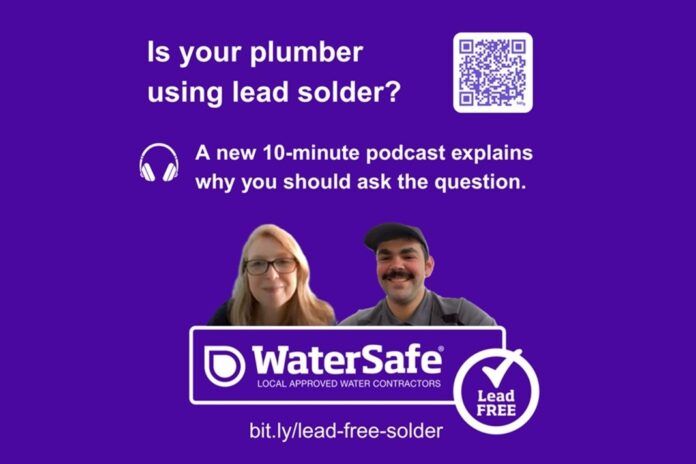
WaterSafe has urged UK householders to ask their plumber about which solder they are using.
The call is highlighted in a new WaterSafe podcast, which discussed the hidden danger of lead from solder in domestic drinking water systems.
Solder is material plumbers use to join pipes to create watertight connections. For pipes carrying drinking water, it must be lead-free by law.
Lead solder has been banned for use on cold water systems since the 1970s. If it’s used on water pipes, tiny amounts can dissolve into the water you drink and cook with. According to a statement, this is especially dangerous for babies and young children as lead exposure can harm their development, affect their IQ and even cause behavioural issues.
Julie Spinks, WaterSafe’s director, revealed in the podcast that research has showed two-thirds of plumbers still carry lead solder in their vans, alongside lead-free alternatives. While lead solder can legally be used for systems like central heating, if a plumber has it at all there remains a risk it can be accidentally used on drinking water pipes, she noted.
Julie said: “Even a small, unintentional mistake can have significant consequences. I’ve seen cases where lead levels in drinking water have been found to be extremely high due to lead-soldered joints, even in places like schools. It’s a completely preventable problem, and by simply asking your plumber, you can help protect your home.”
Ruben Duggan, an award-winning plumber, added: “In the heat of the moment, with floorboards up and water needing to be reconnected quickly, it’s a terrifying thought that a plumber could accidentally pick up the wrong solder. That single joint, once made with lead, can affect the drinking water system forever.”
Lead-free solder usually comes with a green label, whereas lead solder usually has a red label.
